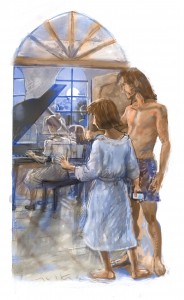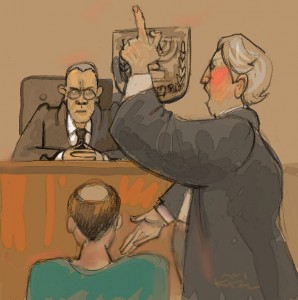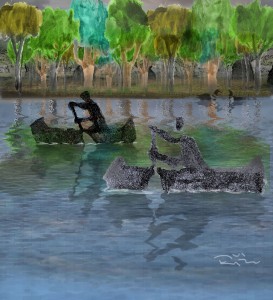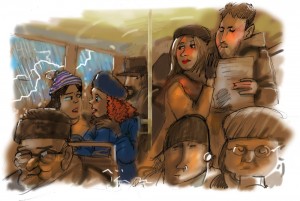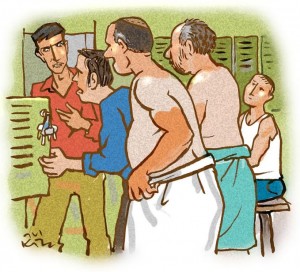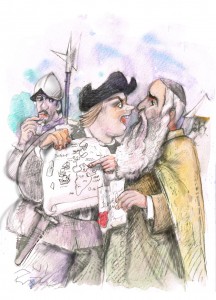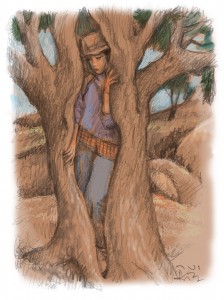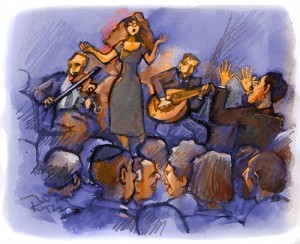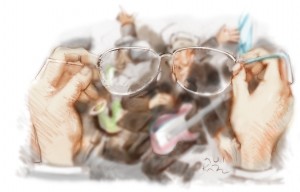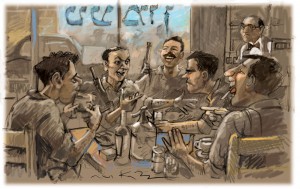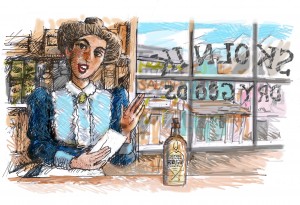Haim Watzman, Review.org Contributor
drawing by Avi Katz</FONT SIZE>
“It’s the piano.” Karin shivered. The music had woken her from an unremembered nightmare. “Someone is playing the piano.”
Or one-eyed her from under his pillow. His muffled voice sounded like it was reaching her from a cave below the floor.
“Call the police.”
“My piano,” Karin said. “Someone is playing my piano.” She raised herself on her elbows, felt a creak in her lower back, and looked down on her research assistant.
Or turned over on his side so that he could use both eyes. “That’s impossible. There are two of us in the apartment. Of the two of us, only you know how to play the piano. And you are here. Ergo, no one is playing the piano.”
An arpeggio sounded in the treble, and was then taken up by the bass.
“That is,” Or suggested, “unless a burglar, about to climb the basement window with his loot, was seized by an irresistible desire to play … what is he playing?”
